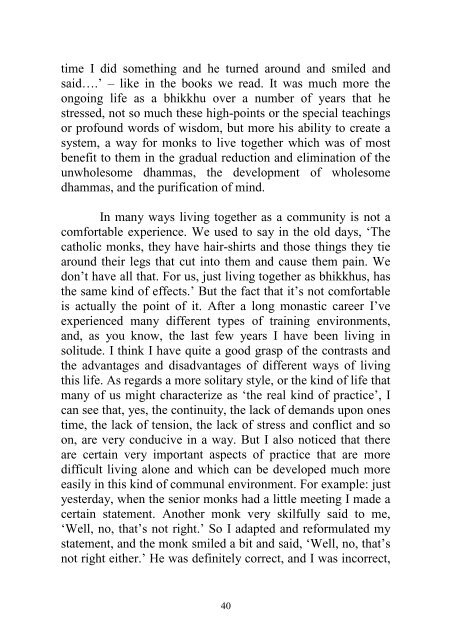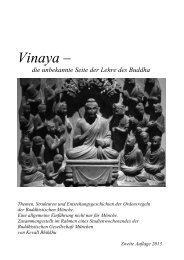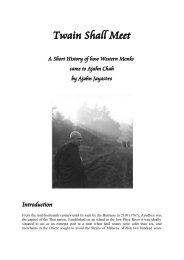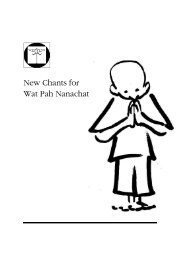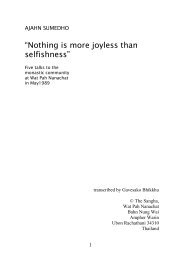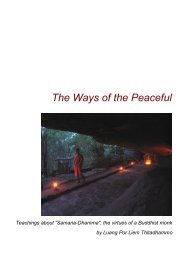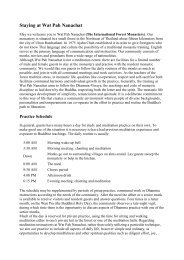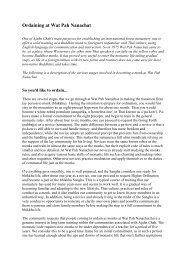Khanti - Wat Pah Nanachat
Khanti - Wat Pah Nanachat
Khanti - Wat Pah Nanachat
You also want an ePaper? Increase the reach of your titles
YUMPU automatically turns print PDFs into web optimized ePapers that Google loves.
time I did something and he turned around and smiled and<br />
said….’ – like in the books we read. It was much more the<br />
ongoing life as a bhikkhu over a number of years that he<br />
stressed, not so much these high-points or the special teachings<br />
or profound words of wisdom, but more his ability to create a<br />
system, a way for monks to live together which was of most<br />
benefit to them in the gradual reduction and elimination of the<br />
unwholesome dhammas, the development of wholesome<br />
dhammas, and the purification of mind.<br />
In many ways living together as a community is not a<br />
comfortable experience. We used to say in the old days, ‘The<br />
catholic monks, they have hair-shirts and those things they tie<br />
around their legs that cut into them and cause them pain. We<br />
don’t have all that. For us, just living together as bhikkhus, has<br />
the same kind of effects.’ But the fact that it’s not comfortable<br />
is actually the point of it. After a long monastic career I’ve<br />
experienced many different types of training environments,<br />
and, as you know, the last few years I have been living in<br />
solitude. I think I have quite a good grasp of the contrasts and<br />
the advantages and disadvantages of different ways of living<br />
this life. As regards a more solitary style, or the kind of life that<br />
many of us might characterize as ‘the real kind of practice’, I<br />
can see that, yes, the continuity, the lack of demands upon ones<br />
time, the lack of tension, the lack of stress and conflict and so<br />
on, are very conducive in a way. But I also noticed that there<br />
are certain very important aspects of practice that are more<br />
difficult living alone and which can be developed much more<br />
easily in this kind of communal environment. For example: just<br />
yesterday, when the senior monks had a little meeting I made a<br />
certain statement. Another monk very skilfully said to me,<br />
‘Well, no, that’s not right.’ So I adapted and reformulated my<br />
statement, and the monk smiled a bit and said, ‘Well, no, that’s<br />
not right either.’ He was definitely correct, and I was incorrect,<br />
40


